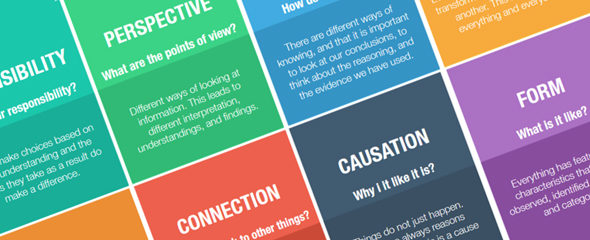In the PYP a balance is sought between acquisition of essential knowledge and skills, development of conceptual understanding, demonstration of positive attitudes, and taking of responsible action.
One of the most significant and distinctive features of the PYP is the six transdisciplinary themes. These themes provide schools with the opportunity to incorporate local and global issues into the curriculum and effectively allow students to “step up” beyond the confines of learning within subject areas.
- Who we are—an inquiry into the nature of the self; beliefs and values; personal, physical, mental, social and spiritual health; human relationships including families, friends, communities, and cultures; rights and responsibilities; what it means to be human.
- Where we are in place and time—an inquiry into orientation in place and time; personal histories; homes and journeys; the discoveries, explorations and migrations of humankind; the relationship between and the interconnectedness of individuals and civilizations, from local and global perspectives.
- How we express ourselves—an inquiry into the ways in which we discover and express ideas, feelings, nature, culture, beliefs and values; the ways in which we reflect on, extend and enjoy our creativity; our appreciation of the aesthetic.
- How the world works—an inquiry into the natural world and its laws, the interaction between the natural world (physical and biological) and human societies; how humans use their understanding of scientific principles; the impact of scientific and technological advances on society and on the environment.
- How we organize ourselves—an inquiry into the interconnectedness of human-made systems and communities; the structure and function of organizations; societal decision-making; economic activities and their impact on humankind and the environment.
- Sharing the planet—an inquiry into rights and responsibilities in the struggle to share finite resources with other people and other living things; communities and the relationship within and between them; access to equal opportunities; peace and conflict resolution.
Students inquire into, and learn about, these globally significant issues in the context of units of inquiry, each of which addresses a central idea relevant to a particular transdisciplinary theme. Lines of inquiry are identified in order to explore the scope of the central idea for each unit. These inquiries are substantial, in-depth and usually last for several weeks.
Since these ideas relate to the world beyond the school, students see their relevance and connect with it in an engaging and challenging way. Students who learn in this way begin to reflect on their roles and responsibilities as learners and become actively involved with their education. All students will come to realise that a unit of inquiry involves them in an in-depth exploration of an important idea, and that the teacher will collect evidence of how well they understand that idea. They will expect to be able to work in a variety of ways, on their own and in groups, to allow them to learn to their best advantage.
The PYP offers a balance between learning about and through subject areas, and learning beyond them. There are six subject areas in the PYP—arts; language; mathematics; physical, social and personal education; science; and, social studies. These subject areas provide students with knowledge, skills, and concepts which students can explore to understand the interconnected nature of the subject areas and the transdisciplinary themes.
Through the PYP curriculum framework, schools ensure that students examine each theme. Read about the PYP curriculum framework here.






